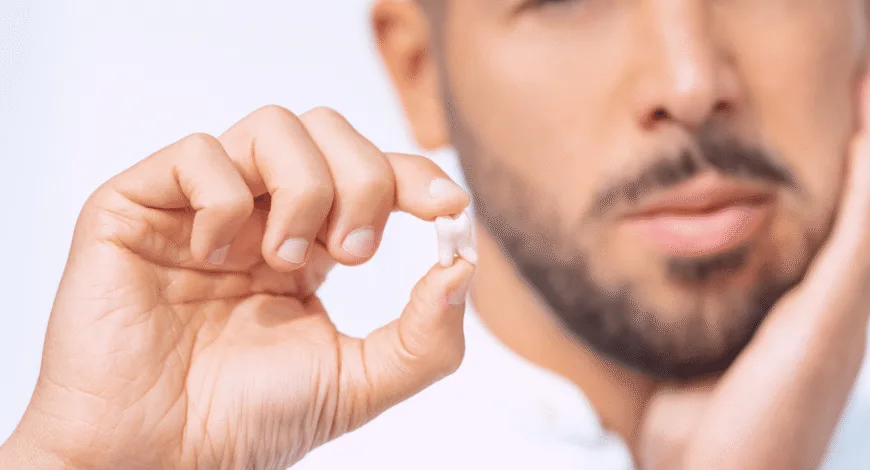That persistent, throbbing headache you’ve been experiencing might not be from stress or lack of sleep. While these are common triggers, the source of your pain could be hiding in plain sight – right inside your mouth. The intricate network of nerves and muscles in your face and jaw means that a problem with your teeth can often manifest as a debilitating headache. This connection is frequently overlooked, leading many to seek endless remedies for their head pain without ever addressing the root cause.
Understanding this link is the first step toward finding lasting relief. In a bustling city like Delhi, where the daily grind can take its toll, it’s easy to dismiss a headache as just another part of a stressful lifestyle. However, for many, the solution lies not in a pharmacy, but in the dentist’s chair. This blog will delve deep into the surprising ways your oral health can trigger headaches and guide you on the path to effective diagnosis and treatment, highlighting why a comprehensive evaluation at a top-tier facility like Dent Ally, often lauded as the best dental clinic in Delhi, is crucial.
The Intricate Connection: How Teeth and Headaches are Linked
The primary link between your teeth and head is the trigeminal nerve, one of the largest nerves in your head.[1] It has three main branches and is responsible for sensations in the face, including your teeth, gums, and jaw, as well as motor functions like biting and chewing.[1] When a dental issue irritates or inflames this nerve, the pain signals can be misinterpreted by the brain as a headache. This phenomenon is known as “referred pain,” where the pain is felt in a location different from its actual source.[2][3]
Beyond the nervous system, muscle tension plays a significant role. Problems with your teeth or jaw can force the surrounding muscles to work overtime, leading to strain and fatigue that radiates to your scalp and temples, causing tension-type headaches.[4][5]
The Dental Culprits: Common Oral Health Issues That Cause Headaches
Several specific dental conditions are notorious for causing headaches. Identifying the underlying issue is key to effective treatment.
1. Temporomandibular Joint (TMJ) Disorders
The temporomandibular joint (TMJ) acts like a sliding hinge, connecting your jawbone to your skull.[6] When this joint is stressed or dysfunctional, it can lead to a condition known as a TMJ disorder (TMD). The muscles of the TMJ extend along your jaw and cheeks to the sides and top of your head.[7] When these muscles become tense, often due to jaw clenching, the pain can spread, manifesting as a TMJ headache.[7]
Symptoms of a TMJ headache often include:
-
A dull, aching pain that begins near the ear and moves toward the jaw, temple, or neck.[2]
-
Pain that worsens with jaw movements like chewing, talking, or yawning.[2][8]
-
A clicking, popping, or grating sound in the jaw joint.[6][7]
-
Tenderness in the jaw muscles.[9]
-
Difficulty opening or closing your mouth completely (lockjaw).[9]
TMJ-related headaches are so common they are often misdiagnosed as migraines.[10]
2. Bruxism (Teeth Grinding and Clenching)
Bruxism is a condition where you unconsciously clench or grind your teeth, often during sleep.[11][12] This constant pressure exerts immense force on your teeth and the surrounding muscles. The resulting muscle tension is a primary cause of headaches, particularly dull, tension-type headaches that wrap around the head or are felt behind the eyes.[2] Many people wake up with a headache, a sore jaw, or sensitive teeth, which are tell-tale signs of nighttime bruxism.[6] Studies have shown a strong association between bruxism and tension headaches, with some research indicating that individuals with awake bruxism are 5 to 17 times more likely to experience them.[12][13]
3. Dental Infections and Abscesses
An untreated cavity can lead to a bacterial infection inside the tooth’s pulp, resulting in a painful abscess.[11] This collection of pus can cause significant swelling and pressure, and the pain can be intense and throbbing.[1] This pain frequently radiates from the infected tooth along the nerve pathways to other parts of the head, triggering severe headaches or even migraines.[11][14] An abscess in an upper tooth, for example, can radiate pain to the ears, neck, and head.[15] In rare and severe cases, an untreated infection can lead to a life-threatening condition called cavernous sinus thrombosis, which causes severe headaches behind the eye or forehead.[2]
4. Malocclusion (Bad Bite)
Malocclusion refers to the misalignment of your upper and lower teeth when you close your mouth.[16] When your bite is not properly aligned, it can put continuous strain on your jaw muscles.[17] This forces the muscles to work harder to bring the teeth together for chewing, leading to muscle fatigue and chronic tension headaches.[17][18] Conditions like an overbite, underbite, or crossbite can all contribute to this muscular strain and subsequent head pain.[16][19]
Is Your Headache Dental? How to Tell the Difference
While it can be tricky to distinguish a dental headache from other types, here are some clues to watch for:
-
Location of the Pain: Pain that starts in the temples, behind the eyes, or near the ear can often be linked to TMJ or bruxism.[2][20]
-
Accompanying Symptoms: If your headache is accompanied by jaw pain, tooth sensitivity, a clicking jaw, or pain while chewing, a dental issue is a likely suspect.[3][7]
-
Timing of the Headache: Headaches that are present upon waking can be a strong indicator of nighttime teeth grinding.[6]
-
Triggers: If your headache worsens when you chew or clench your jaw, it points towards a dental or muscular origin.[3]
The Path to Relief: Diagnosis and Treatment in Delhi
If you suspect your headaches might be linked to a dental problem, the first and most crucial step is to seek a professional evaluation. Ignoring the issue not only prolongs your discomfort but can also allow the underlying dental problem to worsen.[10]
For residents of Delhi and the surrounding areas, finding the best dental clinic in Delhi is paramount for an accurate diagnosis and effective treatment plan. A clinic with a multi-specialty team and advanced diagnostic tools can make all the difference.
Dent Ally: A Hub for Pain Relief and Holistic Dental Care
Dent Ally has established itself as a leading center for dental care in Delhi, particularly for complex cases involving unexplained pain. Their approach to “Pain Relief Dentistry” is specifically designed to address issues like TMJ disorders and related headaches, neck, and jaw pain.[21][22]
Here’s what a comprehensive diagnostic process at a clinic like Dent Ally might involve:
-
Thorough Examination: A detailed review of your medical and dental history, along with a physical examination of your teeth, gums, and the muscles of your head, neck, and jaw.[23]
-
Bite Analysis: Assessing your bite for any signs of malocclusion that could be straining your muscles.[21]
-
Advanced Imaging: Utilizing digital X-rays, OPGs, or even 3D cone-beam computed tomography (CBCT) to get a clear picture of your teeth, jawbone, and temporomandibular joint.[23]
-
Holistic Approach: Dent Ally is also known for being the only clinic in India that practices biological dentistry, taking your overall body health into account when planning treatment, which is critical when dealing with referred pain and systemic inflammation from dental issues.[21]
Once a diagnosis is made, a personalized treatment plan is created. Treatment will vary depending on the cause:
-
For TMJ and Bruxism: Treatment often involves a custom-fitted oral appliance or splint (night guard) to be worn at night. This device prevents grinding and allows the jaw muscles to relax.[24] Physical therapy, stress management techniques, and medication like muscle relaxants may also be recommended.[23][24]
-
For Infections: An infected tooth will likely require a root canal treatment to remove the infected pulp, followed by a crown to protect the tooth. Antibiotics will be prescribed to clear the infection.[11]
-
For Malocclusion: Orthodontic treatment, such as braces or clear aligners like Invisalign, can correct the bite, relieving the strain on the jaw muscles.[16]
Don’t Let Pain Define Your Days
Living with chronic headaches can be draining, affecting every aspect of your life. If you’ve tried everything to find relief with no success, it’s time to consider a different approach. The connection between dental health and headaches is real and well-documented.
By seeking an evaluation from a qualified dental expert, you can finally uncover the true source of your pain. For those in the National Capital Region, visiting a facility like Dent Ally, recognized as the best dental clinic in Delhi for its specialized, patient-centric, and holistic approach, can be the most important step you take towards a pain-free life. Take control of your health, address the root cause, and get back to enjoying a life free from the burden of chronic headaches.
- dentist-alderley-newmarket.com.au
- confluencedentalwenatchee.com
- smileavenuefamilydentistry.com
- londonpainclinic.com
- mhnpc.com
- larsenfamilydental.com
- healthline.com
- americanmigrainefoundation.org
- mountelizabeth.com.sg
- macombsmiles.com
- newenglanddentalct.com
- medicalnewstoday.com
- nih.gov
- fitzgeralddentistry.com
- colgate.com
- cosmeticimplantdentistrykc.com
- shineorthodonticsco.com
- smilegeneration.com
- flossem.com
- koalasleepcenters.com
- dentally.in
- dentally.in
- parkwayeast.com.sg
- webmd.com

